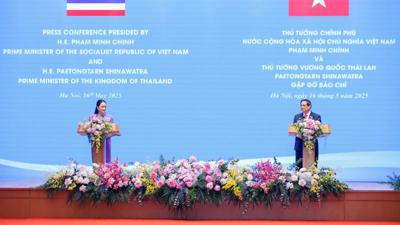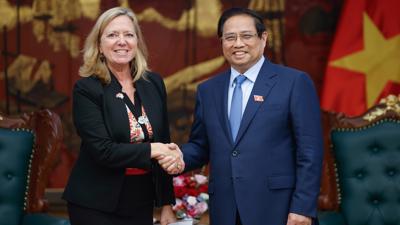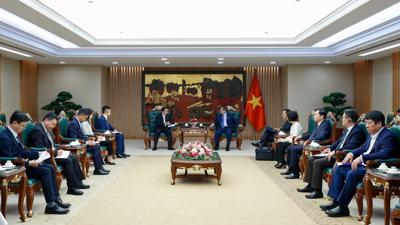Citi Vietnam Head: Vietnam’s economy to recover in 2024
Economy is set for a full recovery this year after overcoming major economic shocks in 2023, Citi Vietnam boss has said.

According to Citi’s latest forecasts, Vietnam’s economy will achieve GDP growth of 5-6 per cent this year with inflation at 3.5-4 per cent. In the best case scenario, Vietnam’s annual GDP growth this year will reach the target set by the National Assembly.
“We believe that the most significant shocks to Vietnam’s economy in 2023 seem to be behind us,” Mr. Ramachandran A.S. (RamC), Country Officer for Citi Vietnam, told VnExpress. “The economy is ready for recovery this year.”
Delving deeper into this assessment, Mr. Helmi Arman, an economist at Citi Vietnam, said the current shift in supply chains could support Vietnam’s exports and industrial production in 2024. Exports are therefore expected to rebound after a roughly 5 per cent decline last year.
“Slow global GDP growth is expected to weaken external demand,” he said. “However Vietnam will continue to benefit from the restructuring of supply chains, thereby expanding the penetration capabilities of export industries.”
The bank also believes that industrial production will remain stable, with sectors it considers “export-oriented”, like textiles, electronics, and footwear, leading the way compared to “domestic-oriented” sectors like basic materials and auto manufacturing.
FDI in manufacturing remained strong in 2023 despite a slowdown in economic growth. This leads Citi to believe that FDI inflows into the manufacturing sector will continue to be abundant in 2024, and Vietnam’s reputation as an emerging global manufacturing hub will remain intact.
Looking ahead, the bank expects annual cost pressures in the industry to normalize, with positive shifts anticipated in 2024. In terms of agriculture, the high demand for rice from neighboring economies may still impact domestic prices, but Vietnam’s rice production has demonstrated strong resilience to El Nino for a long time.
Regarding real estate, Citi mentioned that although the sector stabilized in the second half of 2023, it remains challenging to recover in a V-shaped trajectory. After a decline in the early part of last year, real estate transactions began to increase in the second half due to interest rate cuts and debt restructuring under new regulations.
The bank believes that the social housing segment has potential for recovery due to Vietnam’s low urbanization rate and continued strong FDI inflows.
Citi also observes a gradual recovery in credit demand along with the prospect of GDP growth and the normalization of production costs, naturally increasing demand for working capital credit. Vietnam’s trade surplus may narrow in 2024 as domestic demand recovers.
Therefore, Citi forecasts that the current account surplus will decrease from the estimated 6 per cent of GDP in 2023 to a more sustainable level of 4 per cent.
However, Mr. RamC also noted that to create conditions for higher growth, Vietnam needs larger international capital to fund energy and infrastructure projects, as well as finances for green development.
“Vietnam needs over $135 billion in the next seven years just for electricity production and transmission,” he added. “International capital is essential to achieve this goal.”
“The medium and long-term prospects for Vietnam are very strong. Each country has its destiny, and there are always special opportunities that sometimes open up. Vietnam is currently experiencing this.”







